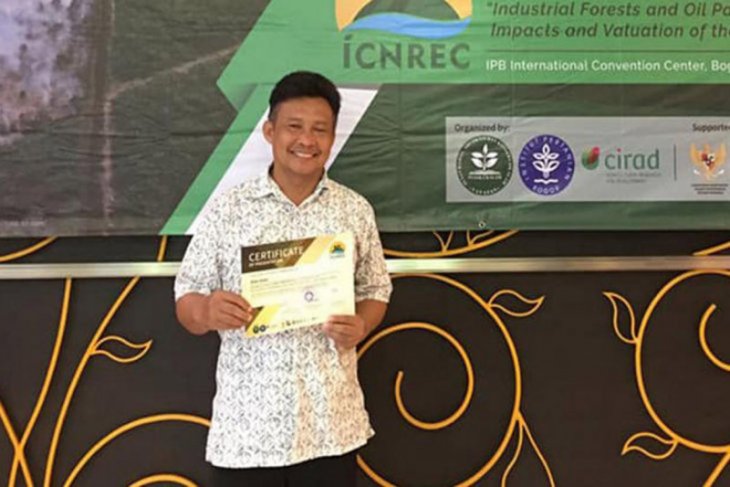Live Streaming
Program Highlight
Company Profile
NLPSF Researcher Cautiously Supports Indonesia's Food-Estate Program
Written by Ani Hasanah
Kitso, a senior researcher of the Palangka Raya University's Natural Laboratory of Peat Swamp Forest (NLPSF). ANTARA/HO-Dokumentasi pribadi
A senior researcher of the Palangka Raya University's Natural Laboratory of Peat Swamp Forest (NLPSF) suggested that a peatland area of depth below 50 centimeters could serve to support Indonesia's food-estate program.
"I disagree with the use of a peatland area of depth of more than 50 centimeters," Kitso, a researcher of the university's NLPSF, stated in connection with the government's plan to create new rice fields in Kalimantan to boost the country's food security.
In conversation with ANTARA news agency in Jakarta on Thursday, Kitso remarked that not all peatland areas can be used for rice farming, though the location of the government's food-estate program was in the former areas of one million hectares of a peatland project.
Kitso cautioned that if new rice fields for the government's food-estate project were opened in peatland areas of depth over 50 centimeters, it would be detrimental to the environment.
The cultivation of peatland areas, with depth of more than 50 centimeters, could also trigger the recurrence of huge land and forest fires akin to that in 1996 and 1997, he pointed out.
The central government had recently revealed its plan to expand its food-estate program by developing 165 thousand hectares of land into farmland in Pulang Pisau District, Central Kalimantan Province.
The government is sentient of the importance of boosting the nation's food security amid this ongoing global COVID-19 pandemic and beyond.
On April 21, 2020, President Joko Widodo (Jokowi) had urged officials to make an accurate assessment of Indonesia's rice stocks.
The president's directive came on the back of the Food and Agriculture Organization (FAO) of the United Nations’ warning of the COVID-19 pandemic triggering a global food crisis.
Speaking in connection with Indonesia's rice stocks, Coordinating Minister for Economic Affairs Airlangga Hartarto had earlier revealed that the country's rice stocks were estimated to reach 4.7 million tons until the end of 2020.
Hartarto informed the press following a virtual limited cabinet meeting chaired by President Joko Widodo (Jokowi) in Jakarta last May that the National Logistics Agency (Bulog) was tasked with maintaining rice stocks of over one million tons.
Hartarto noted that Bulog will absorb 900 thousand to 1.4 million tons of grains of the farmers.
Meanwhile, Agriculture Minister Syahrul Yasin Limpo noted that the national stocks of 11 commodities were forecast to remain safe until June.
The commodities comprise rice, corn, shallots, garlic, large chili, cayenne pepper, beef, buffalo meat, chicken eggs, cooking oil, and granulated sugar. (ANTARA)



